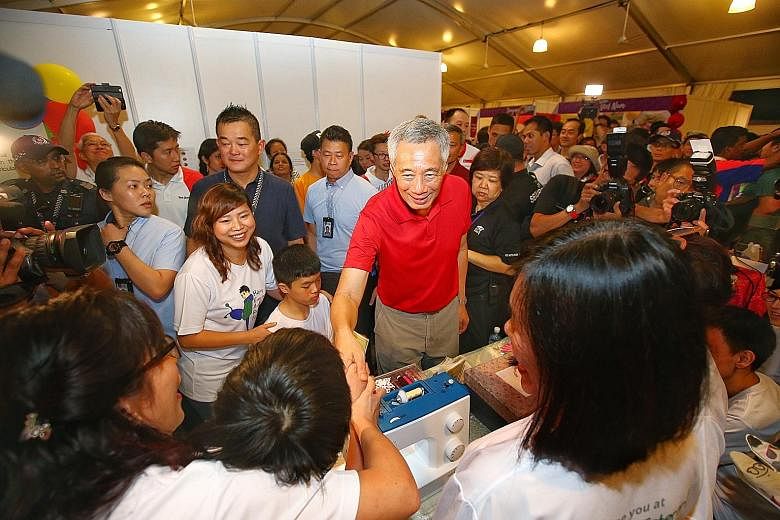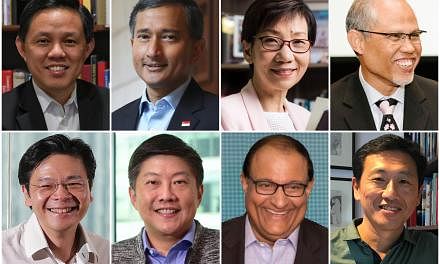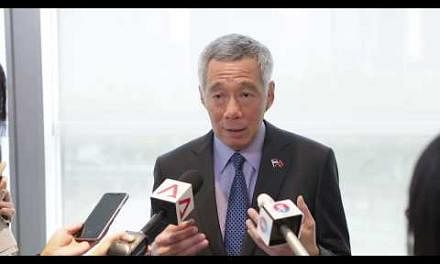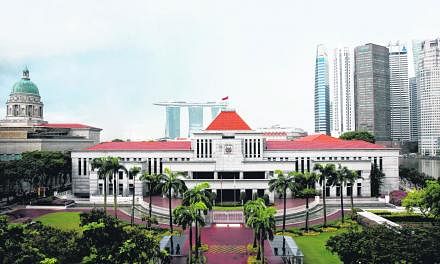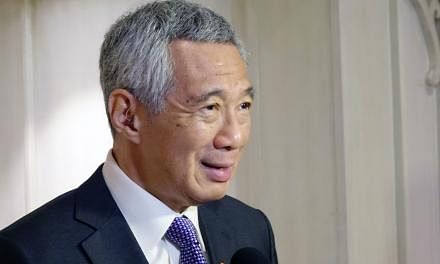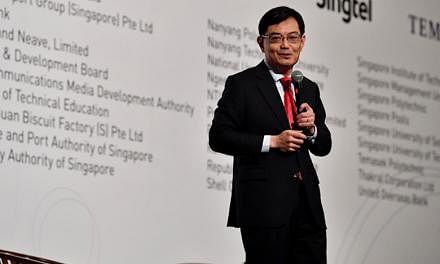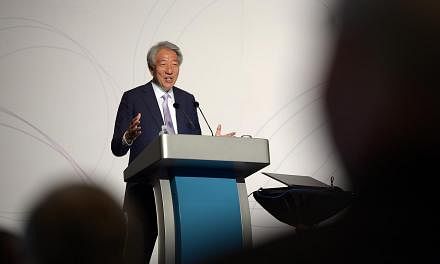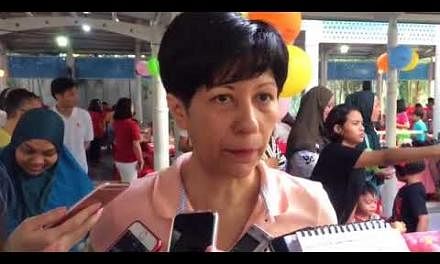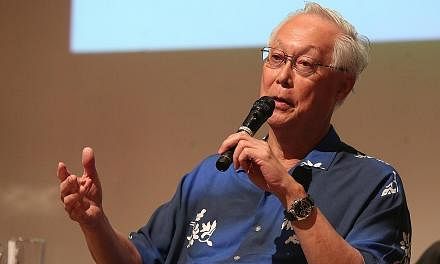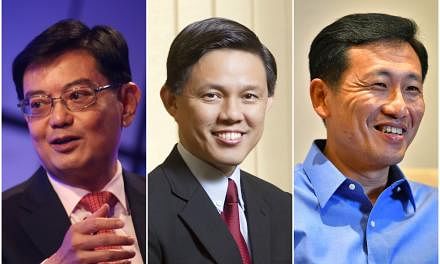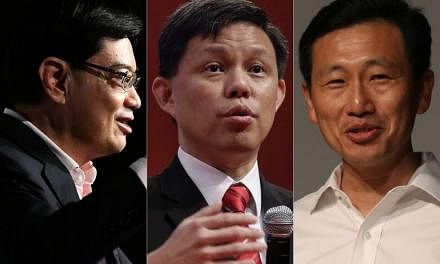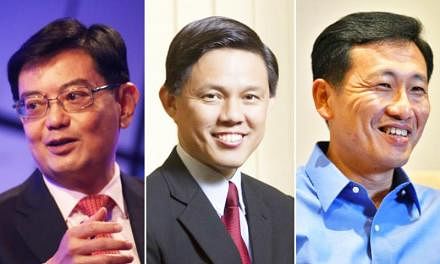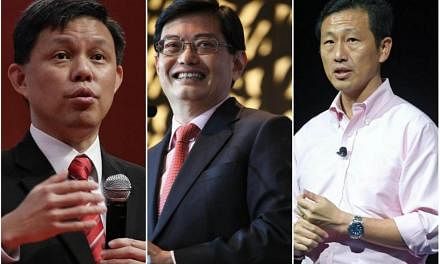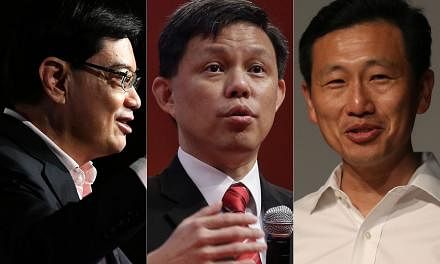A rare public difference of opinion within the People's Action Party (PAP) has brought into the open a dilemma over its leadership succession plans.
Last week, Prime Minister Lee Hsien Loong was asked about a timeline that Emeritus Senior Minister Goh Chok Tong broached last December.
Mr Goh said in a Facebook post that he hoped to see a new leader chosen from among the fourth-generation ministers in six to nine months, and to see that person designated PM Lee's potential successor before the end of this year.
PM Lee told the Singapore media at the end of his visit to India last Friday that he thinks it will take a "little bit longer" than that.
"ESM (Goh) is speaking with the privilege of watching things rather than being responsible to make it happen," he said, in a gentle pushback.
It was a comment that raised eyebrows and strongly suggested that Mr Goh made the post without consulting PM Lee.
The PAP's dilemma is encapsulated in the two differing views. Having laid down a timeline of not staying on as prime minister beyond age 70, PM Lee - who was born in February 1952 and turns 70 in 2022 - now has about four years to hand over to a successor.
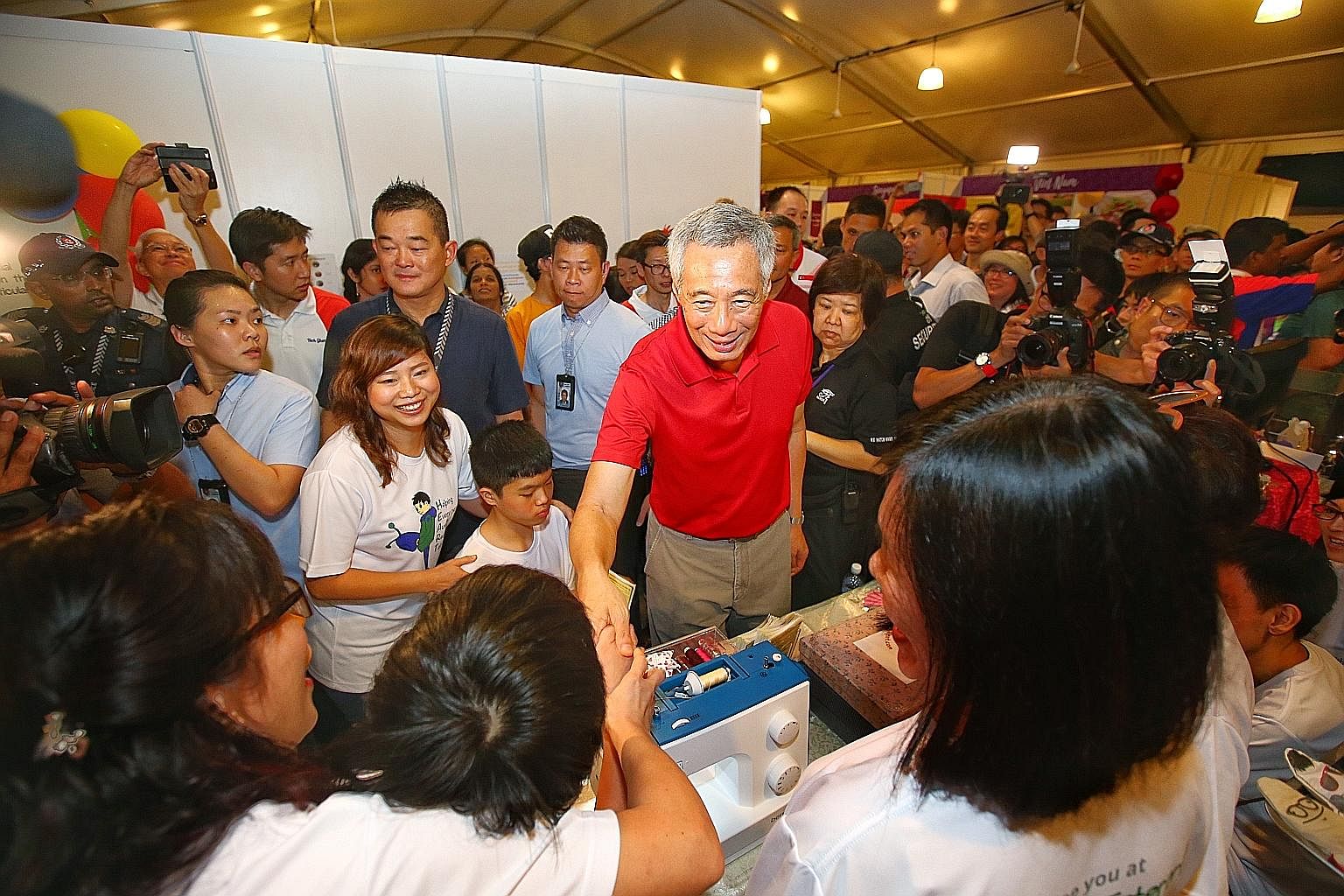
Observers say the front runners to be Singapore's fourth PM are Minister for Finance Heng Swee Keat, 56; Minister in the Prime Minister's Office Chan Chun Sing, 48; and Minister for Education (Higher Education and Skills) Ong Ye Kung, 48.
Four years for a successor PM to emerge might seem like eternity in most political systems. But in Singapore, it is a very short period.
Politics here has long favoured lengthy apprenticeships to ensure stable and seamless transitions.
PM Lee himself was Deputy Prime Minister - and de facto PM-designate - for 14 years before he stepped into the PM role in 2004.
Mr Goh was the official next-in-the-line for nearly six years before taking over in 1990.
The question now is, how soon within the four-year period should an heir apparent be identified and made, well, apparent to the public?
The first view - that of PM Lee - is that the party can afford to wait.
He explained last week why more time is needed: "(The younger leaders) need a bit of time for Singaporeans to get a feel of them... not just to be known as public figures, but to be responsible for significant policies, carrying them, justifying them, defending them, adapting them, making them work, and showing that they deserve to lead. That will be done in good time."
He added that the ministers were also working out among them the team dynamics and "learning to work together".
A hint that more time may be needed was in fact first given by 16 members of the fourth-generation leadership, who issued an unusual joint statement after Mr Goh put up his Facebook post.
In it, they conspicuously avoided addressing Mr Goh's timeline.
They said they were "keenly aware that leadership succession is a pressing issue", adding: "We are conscious of our responsibility, are working closely together as a team, and will settle on a leader from among us in good time."
The second view - Mr Goh's - is that the anointing should take place sooner, rather than later. He did not elaborate on why he thought so, saying only that the task is urgent.
TIME AND TASKS
To be sure, identifying someone early has its advantages. The PM-designate can be given more significant tasks - to the extent of running the Government day to day, as was the case for Mr Goh, when he was First DPM from 1985 to 1990. With the added responsibility, he shows his colleagues that he can hold his own when placed in the hot seat.
With the national spotlight on this person, Singaporeans will have a chance to size him up and decide if he is someone they can follow.
Acting early also ensures room for manoeuvre. If he doesn't pass muster, there is time to explore alternatives.
If there are two views here, who is right - PM Lee or Mr Goh?
The argument for less haste stresses the need for the younger leaders to earn their stripes, and to work through intra-group dynamics, as one among them emerges organically as the leader.
The argument for haste is that the new leader needs time to prove himself in the role of PM-designate - both to his colleagues and to the people. Designate a leader, and then he can form his team and establish his ties with Singaporeans.
In practice, both are important: for a leader to emerge from within the group; and for that leader to then have time to prove himself to the nation. Because PM Lee has said that he wants to step down by the age of 70, there is very limited time to complete both of these significant tasks.
Some believe there is a third option when it comes to selecting the next PM: for PM Lee to pass the baton to one of the DPMs - Mr Teo Chee Hean, 63, or Mr Tharman Shanmugaratnam, 60 - who can be PM for, say, one term, while a younger minister takes more time to prepare to become Singapore's fifth PM.
I would argue that this introduces more transitions unnecessarily. The Cabinet and civil service would have to get used to a different style of leadership and potentially different policy direction in some areas - only to start the process afresh in a few years' time.
AGE-OLD QUESTION
If the purpose is to entrust the mantle of leadership to the next generation, then a more sensible third option is to give the younger ones more time by having PM Lee stay on as PM for slightly longer, beyond the original timeline. This ensures continuity, while the succession issue is worked out.
In my view, this is a viable option.
PM Lee was asked in a 2012 interview - when he was 60 - if he saw himself as PM beyond age 70. He replied: "I hope not."
He added: "Seventy is already a long time more. And Singapore needs a prime minister who is younger, who's got that energy, and who is in tune with that very much younger and very much different generation."
Hoping not is different from saying never.
If called on by circumstances to do so, one hopes PM Lee would not refuse to stay on for perhaps a few more years after 70.
Is a 70-year-old too old to run a country? Mr Ronald Reagan was days short of his 78th birthday when he left the White House. Sir Winston Churchill stepped down as Britain's PM at 80. Both were elected by their electorates well after they were 70, and stayed effective.
Will his health allow it? PM Lee has had health scares in recent years but appears to have recovered fully and has shown no public signs of ill health since. Of course, if health becomes an issue, the transition can be brought forward.
Having PM Lee lead beyond 70 presents a neat solution to the succession dilemma. It gives enough time for the changing of the guard to happen smoothly and uneventfully. It is an option that merits serious consideration.

